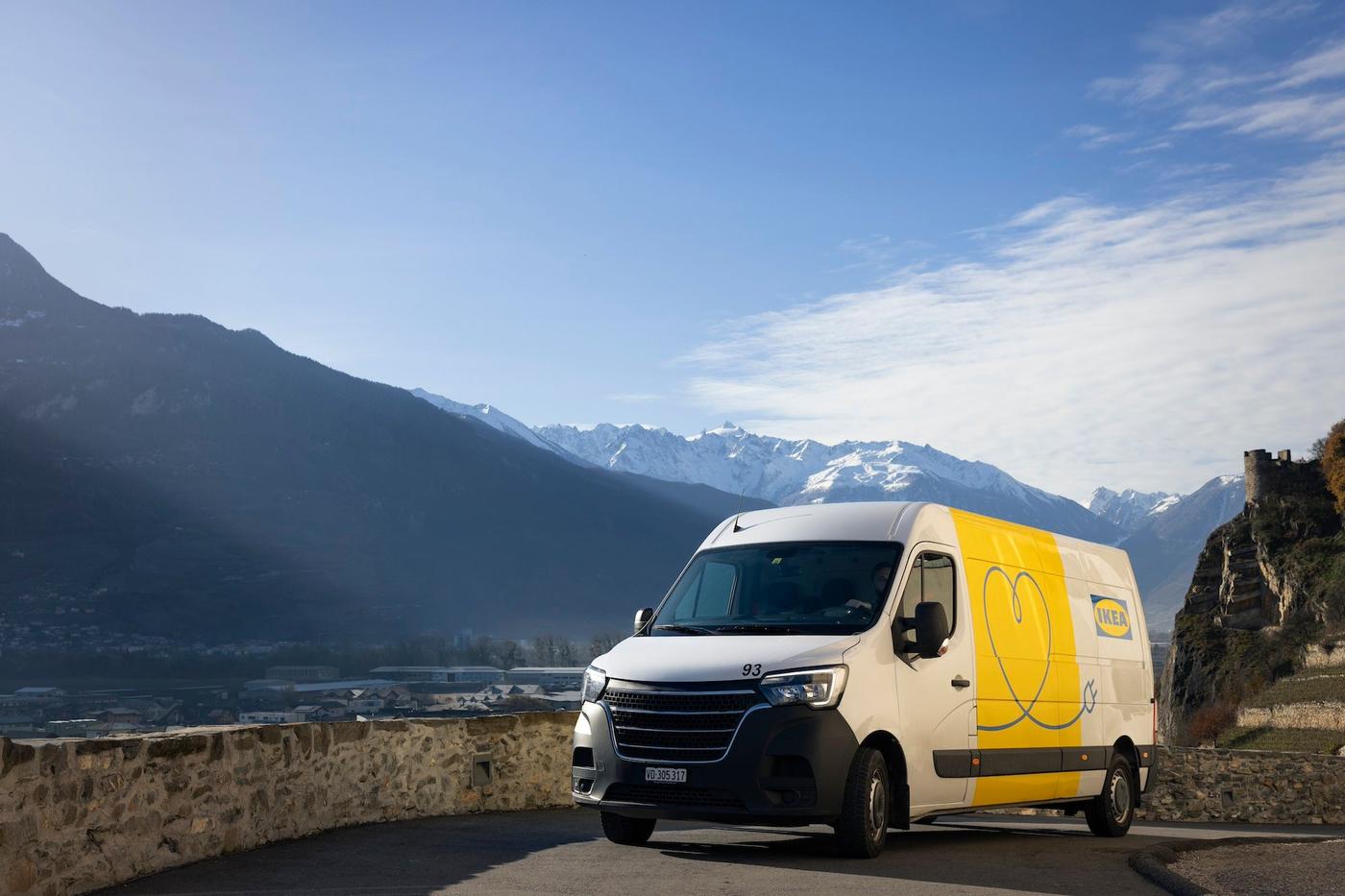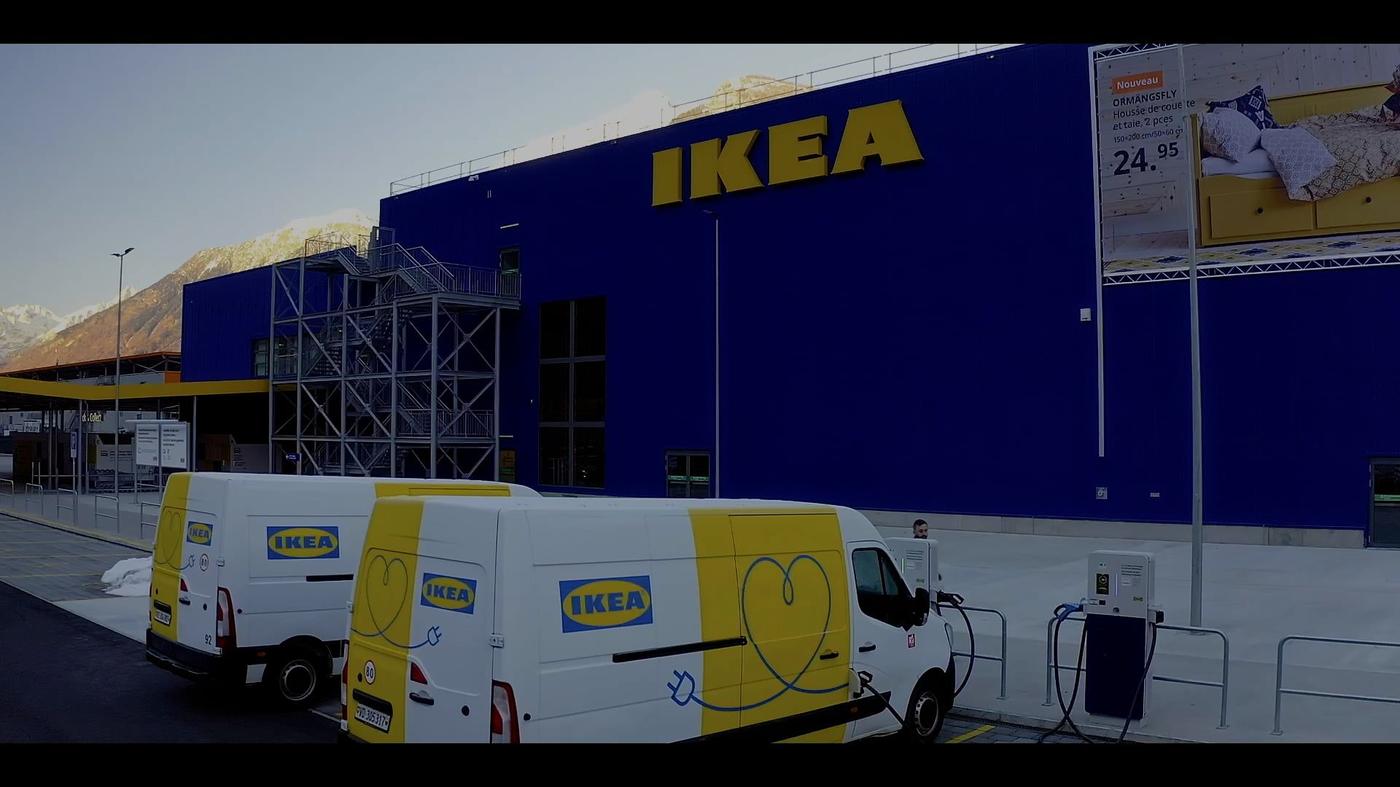
Zero emissions for home deliveries
To achieve our targets of halving emissions by 2030 and becoming net zero by 2050, we need to cut CO2 emissions in all stages of our value chain – including home deliveries. Ingka Group – the biggest IKEA franchisee – is taking significant steps on this front, improving urban air quality along the way.
Urbanisation is accelerating to the point that the average European city now dedicates half of its area to traffic. At the same time, customers’ shopping behaviour is moving towards e-commerce with ‘here & now deliveries’ leading to more vans and trucks in city centres. The transport sector is essential for any city to grow and thrive but it’s also a very polluting sector. In fact, transport represents almost 25% of energy related greenhouse gas emissions and is today the main cause of air pollution in cities.
“By promoting the use of electric vehicles (EVs) or other zero emission options for deliveries, we want to improve the local environment around our stores and act as a good neighbour. With this we hope to see healthier cities, and a healthier climate,” says Simon Henzell-Thomas, Climate and Nature Manager at Ingka Group, which operates IKEA stores in 31 countries.
The Road Ahead
To inspire the shift to zero emission deliveries, Ingka Group set an ambitious target back in 2018 to reach 100% zero emissions home deliveries by 2025.
Already in 2019, Shanghai became the first city where 100% of IKEA home deliveries were transported by EV vehicles, and today IKEA products are delivered 100% emission free across 20 cities, in 300+ IKEA locations by more than 2500+ electric vehicles. In every country, IKEA teams are looking for innovative new ways to deliver to our customers with localized solutions including electric cargo bikes in parts of Italy and Germany and electric three-wheelers across seven cities in India and Australia.
However, the road to 100% zero emissions deliveries has not always been smooth. Charging infrastructure for electric vehicles has not accelerated as quickly as hoped, and the COVID-19 pandemic greatly affected the availability of EV vehicles. We faced challenges in remote locations, where vehicle range combined with the weight of our products slowed us down.
By September 2024, 41.1% of retail home deliveries fulfilled by Ingka Group were made by zero emission vehicles, up from 24.6% the previous year. Progress will now accelerate even further with growth in charging infrastructure and new policies to enable the transition to electric vehicles coming into place.
“We are strongly committed to fulfilling all home deliveries to be made by zero emission vehicles. We decided early on to take a leadership position on this topic to show that transitioning to zero-emission is not only possible but a top priority, even if we don’t yet have all the answers. We are proud that we took this position and are open about the challenges we have faced,” Simon Henzell-Thomas continues.
To reflect the learnings and current progress, Ingka Group has reformulated its goal to achieve more than 90% of home deliveries made by zero-emissions vehicles by 2028.
This goal will continue to build on the ambition and momentum of the first target whilst being achievable and realistic. The aim will always be to go beyond 90% but the gap to 100% represents the uncertainty that will always remain when delivering to customers, such as lack of chargers in remote locations and possible vehicle breakdowns that require replacement by a non-EV vehicle at short notice in order to deliver our customers products as promised.
“Sustainability and good business go hand in hand. By adopting zero-emission delivery, we’re not just helping the planet; we’re creating a strong and adaptable supply chain that benefits both customers and communities,” says Raphael Guillard, Responsible Sourcing Manager, Group Fulfilment & Core Services. “We’re committed to ensuring our customers get what they need, when they need it. The way people shop is changing, and we’re changing with it. Transitioning to zero-emission home delivery allows us to meet customer expectations while also reducing our environmental impact.”
“The landscape for the EV transition has undergone a dramatic transformation in recent years. Leading EV100 members like Ingka Group, who were among the earliest adopters, remain committed, but are adapting their strategies to navigate the uneven progress of fleet electrification across different regions and vehicle types,” says Dominic Phinn, Head of Transport Climate Group, “Delivering on their commitments is paramount, as is Ingka's example of leadership in public and policy debates, which is helping accelerate the EV transition for all.”

Driving change beyond IKEA
Since setting an ambitious target already back in 2018, Ingka Group has also looked beyond its own operations, advocating for policy change to overcome barriers to transitioning to zero-emission transport. These changes enable quicker adoption of zero emission transport options, not only for IKEA but also for wider society.
- For example, though its investments arm, Ingka Group holds minority investments in businesses such as Waabi, which is using generative AI to enable driverless autonomous trucks which is expected to improve efficiency and reduce fuel usage and DST, the largest electric vehicle (EV) operations platform in China.
- Together with others we are close to securing changes to driving license regulations within the EU, that will enable drivers to continue to deliver the same quantity of goods in electric vehicles, allowing for their heavier battery packs and without the need for additional qualifications. This is helping to both increase our share of zero-emission deliveries in key markets, such as Sweden, and alleviate the impact of the driver shortage affecting the entire logistics industry.
- We are working with organisations such as EV100 to engage policy makers on ensuring the right regional, national and local regulation to create the conditions for increased EV uptake.
- We are expanding in city centres which we expect to reduce average journey time to our stores, and we provide access to EV charging points at all our customer meeting points worldwide (where parking is provided) to support uptake of EVs.
